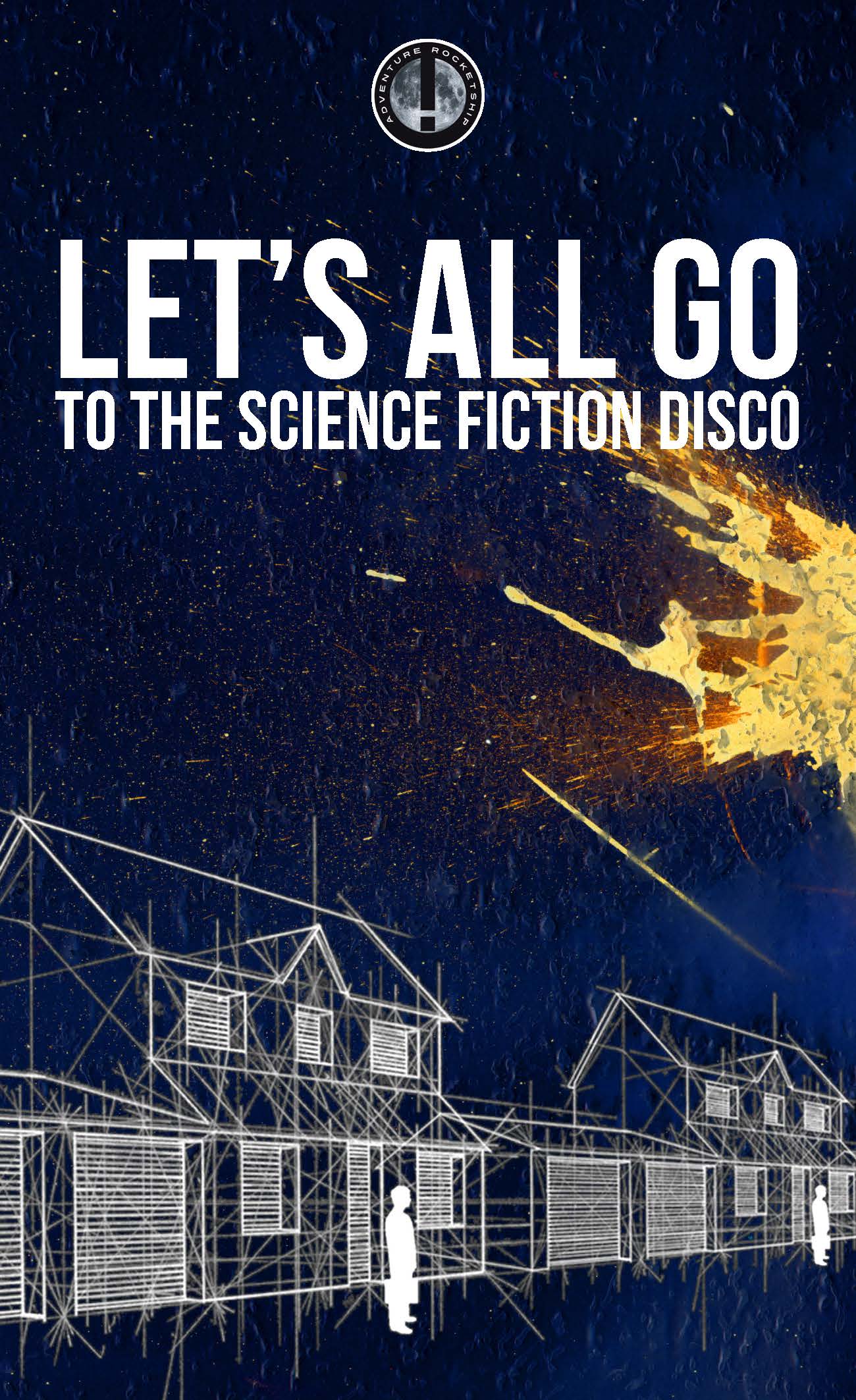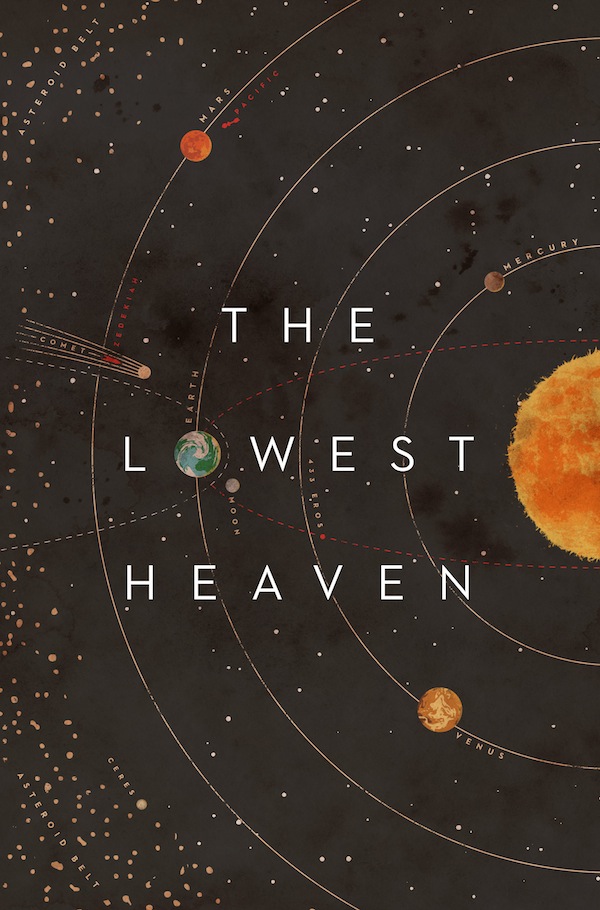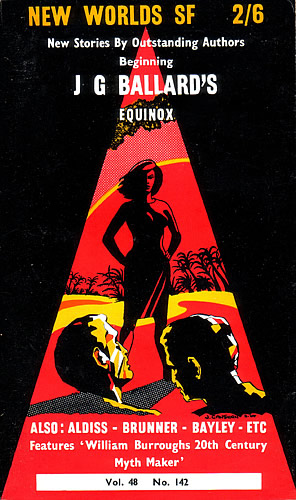Just shy of half a century since the young Michael Moorcock took the editorial helm of a long-running magazine called New Worlds and ushered in a new age of avant-garde science fiction, it appears that we might be in the throes of the birth of a new New Wave.
The original New Wave moved away from shiny futures and bug-eyed monsters and offered more experimental literature, both in technique and subject matter, perhaps best exemplified a couple of years later in 1967 when Harlan Ellison released his Dangerous Visions anthology, bringing new voices, new ideas and a new way of telling stories to take over from the rocket-ships and square-jawed heroes that had gone before. New Wave also brought to the fore many more female writers, such as Joanna Russ and James Tiptree, Jr.
But does the emergence of a new aesthetic in (largely) contemporary British SF signal a similar movement nearly 50 years on?
If so, it is perhaps fitting, then, that one of the main proponents of our New New Wave has nods to the past both in its title, which hearkens back to the Golden Age supplanted by New Wave, and by including an interview with Moorcock himself.
Just like the New Wave never set out to be a movement, neither do those involved in the New New Wave; rather, it is serendipity that they’ve all come together at roughly the same time to create a bit of a buzz in the SF world. Adventure Rocketship! is a new publication edited by writer and journalist Jonathan Wright, which includes fiction, interviews and criticism. It was, says Wright, loosely modeled on The Idler: “I love the idea of a series with its own evolving aesthetic. Also, while being fascinated by digital projects, I still love the idea of the book as object. In the case of Adventure Rocketship! the idea is on one level really as simple as a leftfield SF anthology or even magazine in book form with each issue themed. The first issue, “Let’s All Go To The Science Fiction Disco,” is about music, SF and the counterculture—and the space where they meet.”
 With a cover by Stanley Donwood (aka Dan Rickwood, artistic collaborator of Radiohead) and interviews with Mick Farren and The Orb, as well as new writing by Liz Williams, N.K. Jemisin, Jon Courtenay Grimwood, and David Quantick among many more, Adventure Rocketship! ably fulfills its brief. But why did Wright decide the time was right to try something new?
With a cover by Stanley Donwood (aka Dan Rickwood, artistic collaborator of Radiohead) and interviews with Mick Farren and The Orb, as well as new writing by Liz Williams, N.K. Jemisin, Jon Courtenay Grimwood, and David Quantick among many more, Adventure Rocketship! ably fulfills its brief. But why did Wright decide the time was right to try something new?
He says: “I’ve written about SFF literature for SFX for a long time now (I’m old enough to have covered the turn-of-the-millennium Brit New Wave—China, Jon Grimwood, Al Reynolds et al—and now am watching a bunch of younger writers snapping at their heels) and over those years I’ve detected a loosening up among genre fans about how they think about SFF. SFF fans now, especially younger fans but by no means exclusively—and yes this is a huge generalisation and I’m really, really not getting at anyone here—seem more open to different ways of thinking about / approaching the genre. Broadly speaking, that’s the audience I’m suspect I’m trying to address. It’s interesting to me that a writer such as David Quantick immediately seemed to get what Adventure Rocketship! was about, as did the Pornokitsch guys.”
The “Pornokitsch guys” are Jared Shurin and Anne Perry, who have grown their output from a criticism/review site to encompass their progressive fiction awards, the Kitschies and a boutique publishing company, Jurassic London, which puts out beautiful and forward-thinking SF, and who are quite rightly part of the vanguard of the New New Wave. Their latest publication, The Lowest Heaven, is due to be published on June 13.
 Shurin says: “There’s been a lot of discussion about science fiction being dead—or even worse, exhausted. But a lot of that is based on a very rigorously, very traditional definition of the field. Elements of the speculative are everywhere, in every section of the bookshop. Science fiction isn’t retreating, it is evolving.
Shurin says: “There’s been a lot of discussion about science fiction being dead—or even worse, exhausted. But a lot of that is based on a very rigorously, very traditional definition of the field. Elements of the speculative are everywhere, in every section of the bookshop. Science fiction isn’t retreating, it is evolving.
“What we’re really proud of with The Lowest Heaven is how authors have taken fresh approaches to science fiction’s first and strongest inspiration—space and other worlds. Maybe the book isn’t “traditional SF”—the stories draw just as much romance, mystery, history, fantasy, horror and kitchen sink lit-fic—but it reflects the wonderful, adaptive new direction that the field is taking.”
It would be churlish, really, not to mention at this point the long-running Interzone SF magazine and its sister publication Black Static, which aims for a cerebral horror/slipstream market. But both Adventure Rocketship! and Jurassic London feel new and fresh, complementing rather than supplanting Interzone. And coming along roughly together as they do, it really does feel like a burgeoning movement, one rounded out by Arc magazine, a digital quarterly from the makers of New Scientist and edited by author Simon Ings, which was created in order to feed New Scientist’s readers’ desire for speculative fiction based on the very real technological futures served up by the main magazine.
Tim Maughan has written for both Arc and Adventure Rocketship! is what you might call a non-traditional SF writer—he says before he started writing he didn’t even read much SF, and after having no luck getting his stories published through the “traditional channels” decided to self-publish—retaining a degree of control mirroring his background in electronic music, where independence is feted.
He isn’t sure if there actually is a New New Wave, nor if one is needed, but adds: “There are people kicking against the status quo, and we need them. We need more of them. The ferocity of my opinion shifts from day to day, but right now if you ask me about science fiction I’d suggest it was burnt down to the ground. Nuked back to year zero so we can all start again. It’s just, largely, lost its way. Itås stopped being about ideas, the present or even the future and has just become another slack-jawed asset of the escapist entertainment industry.
“I guess there are some very clear parallels with [British New Wave]—that movement was very important to me personally—Aldiss and in particular Ballard are huge influences. But I’m also cautious of the comparison, just as I’m cautious of when I’m compared to cyberpunk. It seems impossible for anyone to review my stuff without mentioning cyberpunk—which is a huge compliment on one hand, as it was a very important movement to me also, but on the other hand…it’s not the 1980s anymore, just as it’s not the 1960s either. Again I think this is part of SF’s apparent fear of the new or unidentified—it just wants to put everything in a box. ‘Computers and the near future? That goes in the box named cyberpunk. Next?’.”
In a previous interview with Michael Moorcock, Jonathan Wright asked him if the experimental SF writers, such as JG Ballard, were now essentially part of mainstream literature. Or in Wright’s own words, have “the SF novelists stormed the citadel and, while we’re still in the midst of a long siege, basically ‘won’?”
Moorcock told him: “I’ve been saying this for some time. Look in the popular bestseller lists or the literary lists and it’s pretty evident that the incorporation of those SF conventions happened a while back, perhaps without us noticing. Of course, the SF fan, like the rock and roll fan before him, is the last to realise this and goes on shouldering a weird sort of inferiority complex when in fact he’s in the majority now.”
Wright finishes: “It’s a rather trite observation, but our day-to-day world has in lots of key ways become science-fictional. No, we didn’t get personal jetpacks, but we’ve got the internet and mobile phones. How do we write about this? The realistic novel in its strictest sense doesn’t seem equal to the task, but nor funnily enough does science fiction. Solution? As ever, think about stuff, then try stuff, see what works.”
David Barnett is a journalist and author whose first novel for Tor Books, Gideon Smith and the Mechanical Girl, is released in September 2013. He can be found at his website or on Twitter @davidmbarnett










